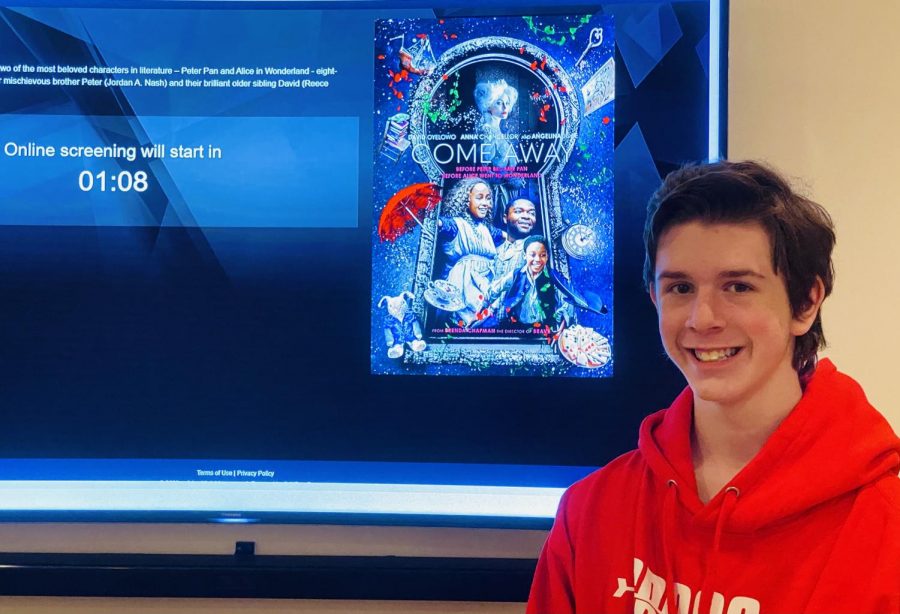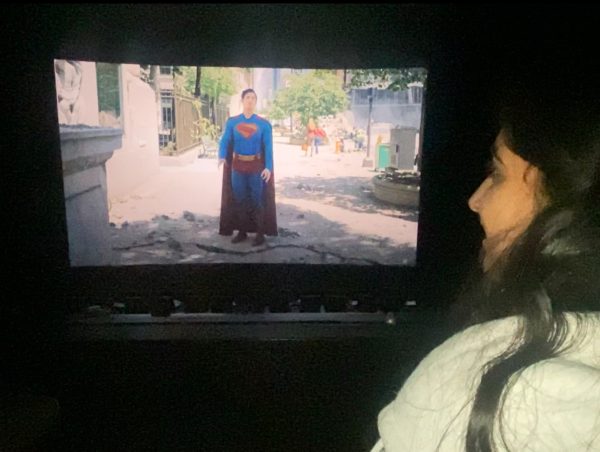Freedman’s Film Forum: “Come Away”
Junior Joshua M. Freedman watches an early premiere of the new film “Come Away” at his house on Nov. 12.
What movie fans anticipate to be a major 2020 film, “Come Away” was a dark, confusing film filled with holes.
“Come Away” follows the story of eight-year-old Alice Littleton (Keira Chansa), her brother Peter Littleton (Jordan Nash), and their parents, Rose (Angelina Jolie) and Jack (David Oyelowo) during the 1800s. The siblings spend their time entertaining their imaginations, which begins as harmless fun but soon turns into dangerous behavior.
After an unforeseen tragedy strikes, the Littleton family is left in a constant streak of bad luck. Peter, who always wanted to remain a young adventurer, feels he must now mature and make his parents proud (although this is only temporary – one of the many examples of poor writing in the film). On the contrary, Alice deals with her sorrow by journeying deeper and deeper into her imaginary world in order to escape the feelings of loss and remorse she feels in the real world.
“Come Away” attempts to marry the real world with those of Peter Pan and Alice in Wonderland by constantly switching between objects, people and their imaginary counterparts through the use of computer-generated imagery (CGI). For example, when Peter would pretend that a stick was a sword, the object would go from being merely a stick in one shot to a deadly weapon in the very next, which was entertaining at first but then fell flat. It is as if “Come Away” never used its own pixie dust to take flight.
Despite its “PG” rating, “Come Away” was dark and, at some points, outright inappropriate for young viewers. Unlike their children who use their imagination to cope with tragedy, Jack and Rose began to partake in behavior not suitable for children.
Both of the Littleton parents succumb to their addictions, Rose through substance abuse, and Jack through gambling. At times, underrage drinking is even glorified when Alice steals her mother’s alcohol and the film makes it seem that it is a magical potion that makes everything seem unreal and enchanted.
As if the writers did not feel this was enough for young children to witness, the film displays family members intimidating and controlling others, as well as metaphorically (and physically) crushing them.
Although not all of “Come Away” is filled with vile themes, most of the film will not be understood by young children (the movie’s target audience) anyway. While there are obvious similarities between characters, names and objects in “Come Away”, many of the forced Easter eggs might go right over the heads of the audience.
Toward the end of the film it appears that the characters have fully descended into their make-believe worlds, which now includes all of society, not just Peter and Alice. This left many holes and unanswered questions, since it is never made clear how the actions in the imaginary world correspond to those made in the real one.
In 2020, what could be more inviting than a title “Come Away” – come away from the pandemic; from the lockdown; from the stress of life. That is why it was so unfortunate that this film only adds to this list of disappointments.
With a rating of only 41% on Rotten Tomatoes, make sure to “Neverland” yourself in front of a screen with “Come Away” playing on it.
Your donation will support the student journalists of Thomas S. Wootton High School. Your contribution will allow us to purchase equipment and cover our annual website hosting costs.
Joshua M. Freedman is a 2022 graduate.









